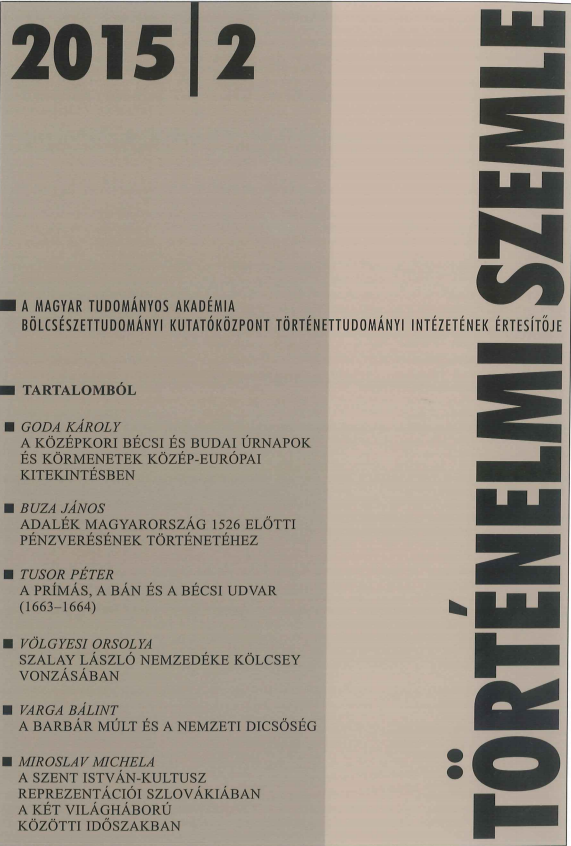Szövetségesi érdek, protestáns szimpátia, katonai realitás: a Rákóczi-szabadságharc és az angol közvetítés
Interests of Allied Powers, Protestant Sympathies, Military Realities: Prince Rákóczi’s Freedom Fight and the English Diplomatic Mediation
Author(s): György KuruczSubject(s): Diplomatic history, Military history, Political history, 18th Century, Other Christian Denominations
Published by: Magyar Tudományos Akadémia Bölcsészettudományi Kutatóközpont Történettudományi Intézet
Keywords: allied powers; military realities; freedom fight; Prince Rákóczi; English Diplomatic Mediation;
Summary/Abstract: This paper argues that the process of turning an uprising into a legitimate freedom fight for the elimination of the excesses of the Habsburg administration in the Kingdom of Hungary, including the recognition of the Hungarians as a negotiating party by the English and Dutch diplomacy at the beginning of the 18th century, was largely dependent on the military progresses made by the insurgent troops of Prince Ferenc Rákóczi II. However, it would be quite misleading to assume that the weakening of the Emperor, the most important ally of the Maritime Powers during the War of Spanish Succession, concerned the English and Dutch diplomats from a military point of view exclusively. The overwhelmingly Protestant public of England certainly had strong sympathies towards the Protestant subjects of the Kingdom of Hungary fighting against their Catholic Habsburg ruler, as a result of which the Whig government launched a media campaign to convince the public that the conflict in Hungary should by no means be deemed as a religious war. By doing so, Rákóczi’s movement was no longer regarded as an isolated regional conflict which is corroborated by the fact that English and Dutch diplomats were acting as mediators from late 1704 onwards to have the Court of Vienna and the Hungarians come to terms concerning a possible peaceful settlement in Hungary. Although the motivation of English diplomacy was largely influenced by the need of having to achieve the massive withdrawal of Imperial troops from Hungary and deploy them on the Rhine under the command of Marlborough, there were some English government figures who were keen on convincing the Habsburg ally to alter its attitude to the Hungarians. George Stepney, as an envoy extraordinary, who acted as a mediator with other Dutch diplomats was instrumental in presenting the Hungarian political, economic as well as religious grievances to his superiors in a balanced manner. According to English diplomatic reports and Stepney’s correspondence, the debacle of the negotiations between the Court of Vienna and the Hungarians did raise the prospect of threatening „the cause of Europe” as was put by an English government official.
Journal: Történelmi Szemle
- Issue Year: 2015
- Issue No: 02
- Page Range: 299-317
- Page Count: 19
- Language: Hungarian

